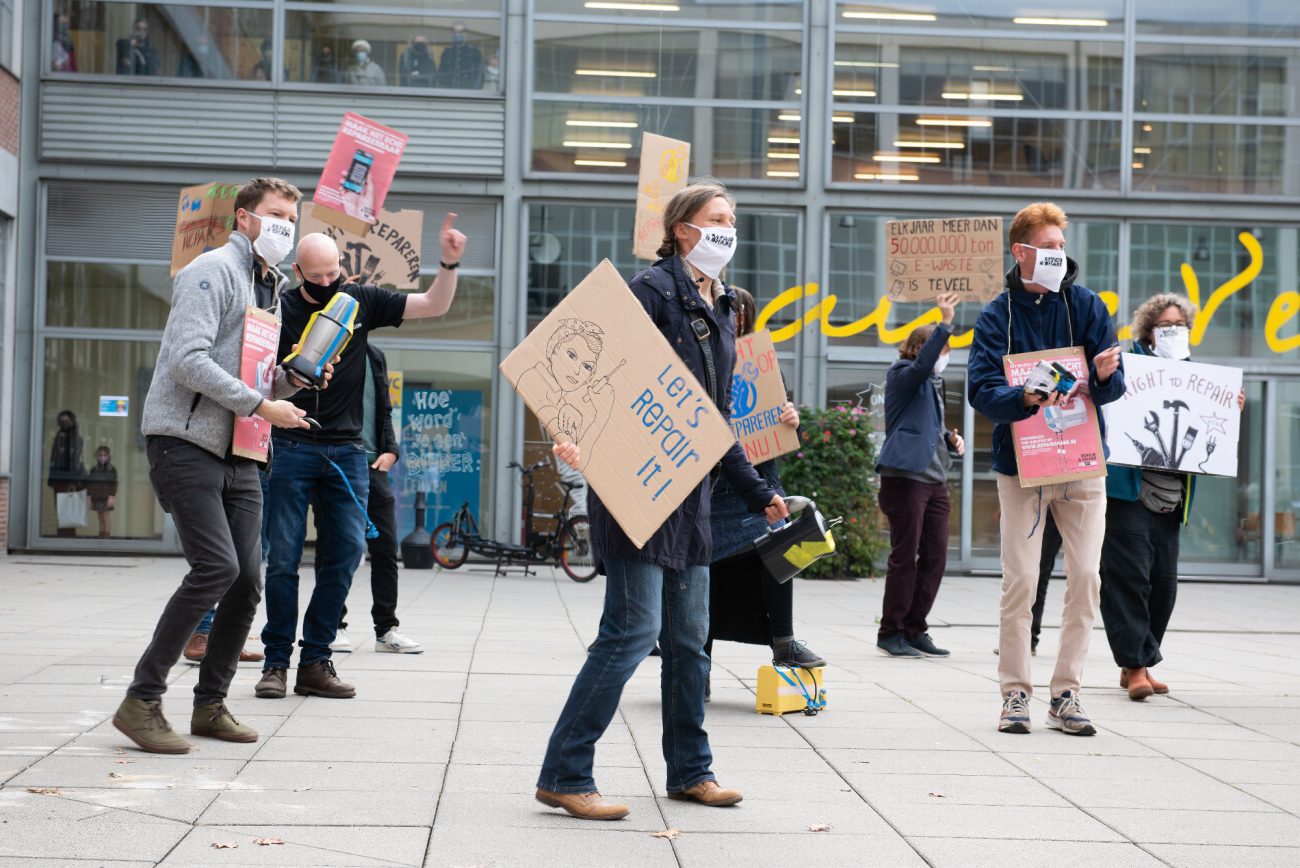This piece was written by our Belgian member Repair & Share as part of the European Week for Waste Reduction.
Did you know that 86 kilograms of waste is generated to manufacture a smartphone that weighs less than 200 grams?
Now think about all the appliances and stuff you own.
These extra kilos we all carry on our shoulders due to unsustainable production and consumption patterns are called the Invisible Waste – this year’s theme of the European Week for Waste Reduction. It is also one of the issues Repair&Share tries to raise awareness about in its campaigns and communication.
At Repair&Share we believe that reducing our individual invisible waste is a tough challenge, yet a possible one. By extending the lifetime of our products through reuse and repair, buying second-hand, renting and sharing products rather than owning them, we can exert less pressure on the environment, thereby curbing climate change.
Repair as one of the remedies
Having your stuff repaired, be it by a professional repairer, a volunteer in a Repair Café or simply by yourself, can play a crucial role in extending a product’s lifespan. Still, it is nowadays not common practice due to the many barriers encountered by citizens: repairing is too complicated, too expensive and sometimes simply impossible.
But we know that there is appetite from the consumer’s side. According to a survey we undertook among Flemish people, 86% of respondents want their products to be more repairable. Similarly, our campaign Recht op Repararen (Right to Repair), where we claim that everyone should be entitled to products that last and are repairable, has attracted a lot of enthusiasm and attention among Belgian citizens: our manifesto has already gathered over 6000 signatures.
Repair as a vector of social inclusion
Repairing is not only virtuous for the environment. At Repair&Share, we believe that the repair sector can act as a springboard for a sustainable and inclusive circular economy. Initiatives such as the Kringwinkels (social enterprise re-use centres in Flanders), show that repair can generate local, rewarding employment opportunities, also for those people far from the labor market. Just like Repair Cafés, these initiatives ensure that financially vulnerable people can avoid expensive purchases.
For all these reasons, among many others, we believe it is about time to embed repair in our daily routine, and to truly appreciate its contribution in reducing the invisible waste.
Image by: © Hugo Delvaux

